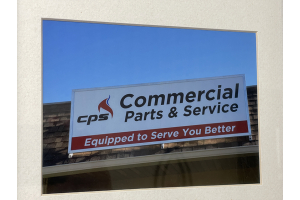Preparing Your Kitchen & Staff To Handle Food Allergies

 It seems that today, more and more people suffer from food allergies than ever before. Or at least, the issue of food allergies comes up more than it used to. And when you visit a food or drink establishment, it’s now pretty common to see call outs on the menu that warn consumers of which foods or drinks contain certain known allergens.
It seems that today, more and more people suffer from food allergies than ever before. Or at least, the issue of food allergies comes up more than it used to. And when you visit a food or drink establishment, it’s now pretty common to see call outs on the menu that warn consumers of which foods or drinks contain certain known allergens.
We’ve heard our share of stories from restaurant owners and wait staff regarding food allergies. Some people are skeptical of those who claim to have food allergies while others take extreme precautions to avoid contamination. Maybe you’re on the fence about how you should handle food allergies in your own kitchen and are looking for some advice.
Before you make any judgement calls or plans, let’s first look at the definition of an allergy.
What is a food allergy?
There is a lot of confusion around food allergies, and understandably so. Some people claim to have food allergies when in reality, they have what is better defined as a “food intolerance” or sensitivity. However, this does not take away from the consequences that food allergies present. And even if someone wrongfully claims that they have a food allergy when they actually have an intolerance, they still pay the price from eating the food; diarrhea or upset stomach might not be fatal, but they are still unpleasant complications.
So what separates a true food allergy from a food sensitivity or intolerance? The Mayo Clinic defines food allergy as “an immune system reaction that occurs soon after eating a certain food. Even a tiny amount of the allergy-causing food can trigger signs and symptoms such as digestive problems, hives or swollen airways. In some people, a food allergy can cause severe symptoms or even a life-threatening reaction known as anaphylaxis”.
As you can see, true food allergies are NOT something that should be overlooked or scoffed at. While we do understand that some people ignorantly refer to their food intolerance as an allergy, it is not fair to put those who do have an allergy at risk by dismissing their requests or questions.
Since food allergies can result in fatal consequences, it’s best that your wait and kitchen staff be informed and prepared to handle them.
Common Allergies
The most common food allergies that occur in children and adults include:
- Milk
- Eggs
- Peanuts
- Tree nuts
- Soy
- Wheat
- Fish
- Shellfish
This list is by no means exhaustive. People can have allergies to almost any ingredient or food.
What You Can Do
If you’re a restaurant or commercial kitchen owner or manager, then according to the Model Retail Food Code produced by the FDA, you are responsible for understanding food allergies. But your responsibility doesn’t stop there. You are also in charge of making sure your staff understands food allergies and for training them how to properly handle guests with food allergies.
While this process may seem overwhelming, don’t despair. There are a few steps you can take to get the ball rolling.
1. Compile a “Master Menu”
A Master Menu is a document that lists all of your dishes and their ingredients. This is a great resource for staff and customers alike to reference when they are unsure of what all goes into a dish. It may take a while to put together, but having a Master Menu will be key in preventing issues with food allergies.
2. Create a Food Allergy Policy
In order for staff to follow food allergy guidelines, you first have to establish what those guidelines are. Some examples of restaurants’ policies include:
-Having a designated person in both the kitchen and on the wait staff who are responsible for preparing and delivering all dishes to customers with food allergies.
- Having your head chef come to the table of the customer with the food allergy to discuss allergy free menu options.
- Having a completely separate area of the kitchen assigned as an allergy free zone.
3. Conduct Initial and Ongoing Allergy Training
When you hire new staff members, it is recommended that they go through training on food allergies. This includes understanding what food allergies are, being able to recognize symptoms, and being trained on your specific policies for handling food allergies. Training shouldn't stop there, training should really be an on-going process. For example, some restaurants will set aside 5-10 minutes before the start of a new shift to go over the menu for the day and inform the kitchen and wait staff of what dishes contain certain allergens.
In addition to providing training, you should also document the date that each employee received the training and have them sign off on it. This helps hold all team members responsible for doing their part.
Preparing your kitchen and staff to handle food allergies can seem like a time consuming task, however, for your customers, it can literally be the difference between life and death. It’s important to remember that there are individuals who have severe food allergies and it is your responsibility to help keep them safe when they dine with you.
If you would like more information on food safety and food allergy training, check out FARE- the Food Allergy Research and Education organization’s website.




